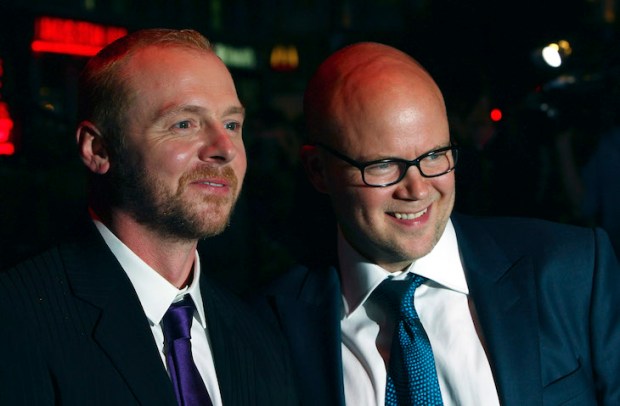I’m writing this from the Conservative party conference in Manchester, but it’s Ed Miliband I want to discuss. In particular, his objection to Saturday’s article in the Daily Mail about his father Ralph.
I felt a smidgen of sympathy for Ed when I saw the headline (‘The Man Who Hated Britain’) because a similar piece could be written about my father. May be written about him, in fact, if I pursue a career in politics. Like Ralph Miliband, he was a left-wing intellectual and, while he didn’t renounce parliamentary democracy, he was at one point a member of the Communist party. He left in 1936 after the first of Stalin’s show trials. He didn’t hate Britain, obviously, but then I don’t suppose Ralph Miliband did either — not all of it, anyway.
But my sympathy for Ed vanished when he decided to pick a fight with the Mail over it. I don’t buy the argument that he was moved by a genuine sense of outrage and couldn’t let the slur against his father’s good name stand. To me, it felt like a piece of cold political calculation. Any attack on the Mail is always warmly received by the left and creating a stink about it had the added advantage of distracting attention from the Tory conference. Above all, sticking up for his dad makes Ed look good. It humanises him. Mondeo Man may not get excited by his talk of ‘pre-distribution’ and ‘resetting the market’, but he can connect with a son’s pride about his father.
Some people will think I’m being cynical — and I’m prepared to allow that Ed’s anger wasn’t -completely cooked up for the media. I’m not accusing him of being inauthentic. Rather, I don’t think that distinction — authentic/inauthentic — has any purchase in Ed’s case. Nothing he says or does is spontaneous or natural. It’s all calculated.
That’s true of a lot of politicians, obviously. But in Ed’s case, you get the impression that it’s not just in public that he’s unable to relax. It’s as if there’s nothing really there beneath the soundbites and the platitudes. He can’t be himself because he doesn’t have a self to be, at least not in the normal sense of the word. He’s a politician all the way down to his tippy toes. The reason he seems so robotic is because he’s basically a robot.
This is where I think the Mail and the rest of the right-wing press has got it slightly wrong. The reason he’s so tongue-tied and cautious when being interviewed is not because he’s trying to conceal his left-wing convictions. He’s trying to conceal the fact that he doesn’t have any convictions. When asked what he thinks about an issue he can’t refer back to his core beliefs like a normal person because deep down in his core there’s nothing there. He’s an empty vessel.
Where the Mail is right, I think, is in branding him an ideologue — which is different from having convictions. Indeed, one of the reasons ideology is attractive to people like Ed is because it absolves them of the need to think too deeply about anything. That’s convenient if you lack any internal navigation system. Embracing an ideology, whether it’s communism or fascism, is like buying your convictions ready made off the shelf. Ideology fills the hole left by the absence of a moral compass — which is why ideologues are often guilty of appalling misdeeds.
Luckily, I don’t think we need worry too much about Ed getting hold of the keys to Downing Street. The paradox of democratic politics is that even though it rewards politicians who aren’t weighed down with convictions and are able to cut their coats to suit their cloth, it punishes those who don’t have any at all. The public can sense there’s something a bit off about Ed. He doesn’t smell right. He’s got a bit missing where most of us have a bedrock of beliefs.
Some people reading this will be thinking, ‘What about Blair? Not believing in anything didn’t do him any harm.’ But I think that’s a misreading of Blair’s character. The distinction between him and Ed — and the reason he triumphed where Ed will fail — is neatly summed up in this quote from Robert Musil, author of The Man Without Qualities: ‘And indeed the most coldly calculating people do not have half the success in life that comes to those rightly blended personalities who are capable of feeling a really deep attachment to such persons and conditions as will advance their own interests.’
Blair was one such ‘blended personality’. Ed isn’t.
Got something to add? Join the discussion and comment below.
Get 10 issues for just $10
Subscribe to The Spectator Australia today for the next 10 magazine issues, plus full online access, for just $10.
Toby Young is associate editor of The Spectator.
You might disagree with half of it, but you’ll enjoy reading all of it. Try your first month for free, then just $2 a week for the remainder of your first year.















Comments
Don't miss out
Join the conversation with other Spectator Australia readers. Subscribe to leave a comment.
SUBSCRIBEAlready a subscriber? Log in